Starting a blog can be both exciting and daunting. With so much information available on the internet, it can be overwhelming to know where to start. Whether you're looking to start a blog as a hobby or want to create a successful business, this ultimate guide has got you covered. In this step-by-step guide, we will walk you through everything you need to know about starting a successful blog from scratch.
From choosing a niche and creating a brand to setting up your website and creating content, we've got you covered. This guide will give you the confidence you need to start your blogging journey and build a successful online presence. So grab a notebook and pen, and let's get started!
Table of Contents
- 1 Why start a blog?
- 2 The Ultimate Guide to Starting a Successful Blog from Scratch
- 3 Finding your niche and audience
- 4 Choosing the right blogging platform
- 5 Setting up your blog: domain name, hosting, and design
- 6 Creating high-quality content that engages readers
- 7 Developing a content strategy and editorial calendar
- 8 Promoting your blog: social media, SEO, and email marketing
- 9 Building a community by engaging with readers and other bloggers
- 10 Monetizing your blog: advertising, affiliate marketing, and sponsored content
- 11 Measuring success and continuously improving your blog
- 12 Recap
Why start a blog?
There are many reasons why someone may want to start a blog. Perhaps you have a passion for a particular topic, like food, travel, or fashion, and want to share your experiences and insights with others. Maybe you're looking to establish yourself as an expert in a certain field, or to build your personal brand. Or maybe you simply want a creative outlet to express yourself and connect with others who share your interests.

Whatever your reason for starting a blog, there are many benefits to doing so. Blogging can help you to improve your writing skills, build your confidence, and develop a loyal following. It can also provide you with opportunities to collaborate with other bloggers and brands, and even to earn money through advertising and sponsorships.
However, it's important to keep in mind that starting a successful blog requires time, effort, and dedication.
The Ultimate Guide to Starting a Successful Blog from Scratch
You'll need to be committed to creating high-quality content on a regular basis, promoting your blog through social media and other channels, and engaging with your readers to build a community around your brand. But with the right mindset and approach, starting a blog can be a rewarding and fulfilling experience that opens up a world of opportunities.
Finding your niche and audience
Before you start writing blog posts, you first need to determine what your niche is and who your target audience is. Your niche is the specific topic or area that your blog will cover, while your target audience is the group of people who are interested in that topic.!
To find your niche, you should consider your own interests, expertise, and passions. You want to choose a topic that you are passionate about and have a deep understanding of. If you choose a topic that you are not interested in, it will be difficult to stay motivated and come up with new ideas for your blog.
Once you have chosen your niche, you need to identify your target audience. This can be done by creating a reader persona, which is a fictional representation of your ideal reader. You should consider their age, gender, interests, values, and challenges. By understanding your target audience, you can create content that appeals to them and helps to solve their problems.
It's important to note that your niche and target audience can evolve over time as you gain more experience and insights into your readers' needs. Don't be afraid to pivot or make changes to your blog if you feel that it's not resonating with your audience. By staying true to your niche and catering to your target audience, you can build a loyal following and establish yourself as an authority in your field.
Choosing the right blogging platform
Choosing the right blogging platform is one of the most crucial steps in starting a successful blog from scratch. There are several blogging platforms available, but not all are created equal. Some are more user-friendly, while others offer more customization options. It's important to choose a platform that fits your needs and goals for your blog.
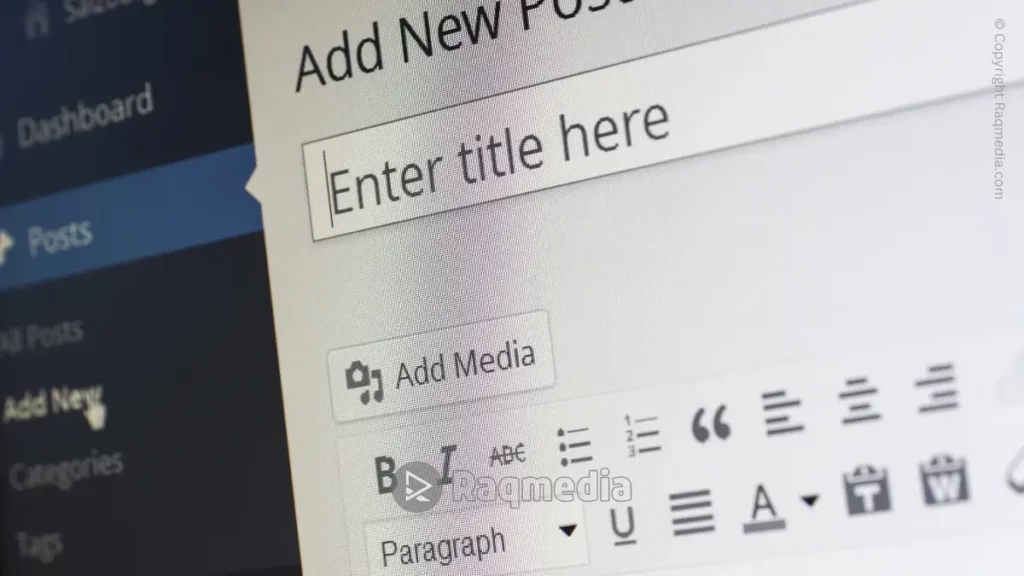
One of the most popular blogging platforms is WordPress. It's user-friendly and offers a wide range of customization options. It's also flexible in terms of design and functionality, making it a great option for bloggers with varying levels of technical expertise.
Another popular option is Blogger, which is owned by Google. It's a simple and easy-to-use platform that's great for beginners. It may not offer as many customization options as WordPress, but it's a great option for those who just want to get started with blogging quickly and easily.
If you're looking for a platform that's specifically designed for blogging, then you may want to consider platforms like Tumblr or Medium. These platforms are great for bloggers who want to focus solely on writing and building their audience, without worrying too much about design and customization.
Ultimately, the right blogging platform for you will depend on your specific needs and goals for your blog. It's important to do your research and choose a platform that's easy to use, offers the features you need, and fits within your budget.
Setting up your blog: domain name, hosting, and design
Once you have decided on your blog's niche and purpose, it's time to set it up. The first step is to choose and register your domain name. Your domain name will be your website's address, so it's important to choose a name that is easy to remember, relevant to your niche, and unique. You can register your domain name with a domain registrar like GoDaddy or Namecheap.

Next, you need to choose a hosting provider. Hosting is the service that allows your website to be accessible on the internet. There are different types of hosting options available, such as shared hosting, VPS hosting, and dedicated hosting. Choose a hosting plan that suits your needs and budget.
Once you have a domain name and hosting, it's time to design your blog. You can either design your blog yourself or hire a web designer to do it for you. Choose a theme that is appropriate for your niche and customize it to make it unique. Make sure your blog is easy to navigate, mobile-friendly, and loads quickly. A well-designed blog will attract more visitors and keep them engaged.
Creating high-quality content that engages readers
When it comes to creating a successful blog, high-quality content is the most important factor. Your content needs to engage your readers and provide them with value. Without quality content, your readers will quickly lose interest and move on to other blogs.
The key to creating high-quality content is to identify your target audience and understand their interests and pain points. This will help you create content that is relevant and useful for them. A good way to start is by conducting research on your target audience and identifying the topics that are most relevant to them.
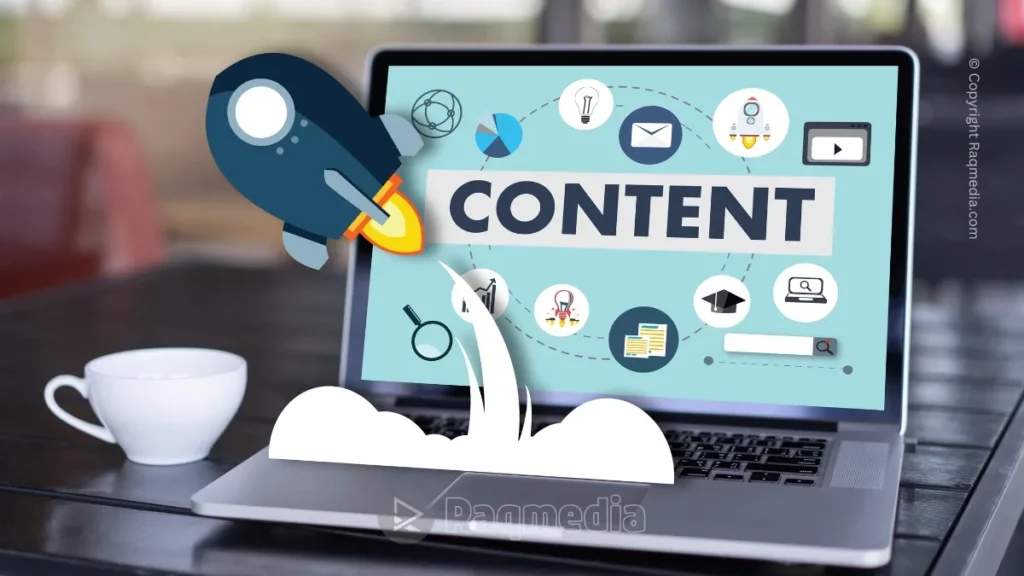
Once you have identified your target audience and the topics that interest them, it's time to start creating your content. You should aim to create content that is well-written, informative, and engaging. You can use a variety of formats such as blog posts, videos, infographics, and podcasts to keep your content fresh and engaging.
Another important factor to consider when creating high-quality content is search engine optimization (SEO). You should optimize your content for keywords and phrases that your target audience is searching for. This will help your content rank higher in search engine results pages (SERPs) and attract more organic traffic to your blog.
Finally, don't forget to promote your content on social media, email newsletters, and other channels to reach a wider audience. With high-quality content and effective promotion, you can build a successful blog that engages readers and drives traffic to your site.
Developing a content strategy and editorial calendar
Developing a content strategy and editorial calendar is crucial when starting a blog from scratch. Without a plan, it can be easy to lose focus and direction, resulting in a lack of consistency and quality in your content.
Start by identifying your target audience and what type of content will resonate with them. Consider what topics you want to cover and how often you want to post. It's important to strike a balance between quality and quantity.
Once you have a list of topics, prioritize them based on relevance and interest to your audience. Then, create a content calendar that outlines when each piece of content will be published. This will help you stay on track and ensure that you are consistently publishing content on a regular basis.
It's also important to consider the format of your content. Will you be writing blog posts, creating videos, or recording podcasts? Determine what works best for you and your audience and incorporate a variety of formats to keep your content fresh and engaging.
Remember, developing a content strategy and editorial calendar takes time and effort, but the end result will be a blog that is well-organized, consistent, and attracts and retains readers.
Congratulations! You’ve created a fantastic blog filled with amazing content, but it’s not enough to just publish and hope people will find it. You need to promote your blog to get your content in front of as many people as possible.
There are three main ways to promote your blog: social media, SEO, and email marketing.
Social media is a powerful tool to promote your blog and can help you reach a wider audience. Share your blog posts on your social media platforms such as Facebook, Instagram, Twitter, and LinkedIn. Make sure to use relevant hashtags so that people who are interested in your niche can find your content easily. SEO is another important way to promote your blog. Make sure you optimize your blog content for search engines. This includes using keywords, meta descriptions, and title tags.
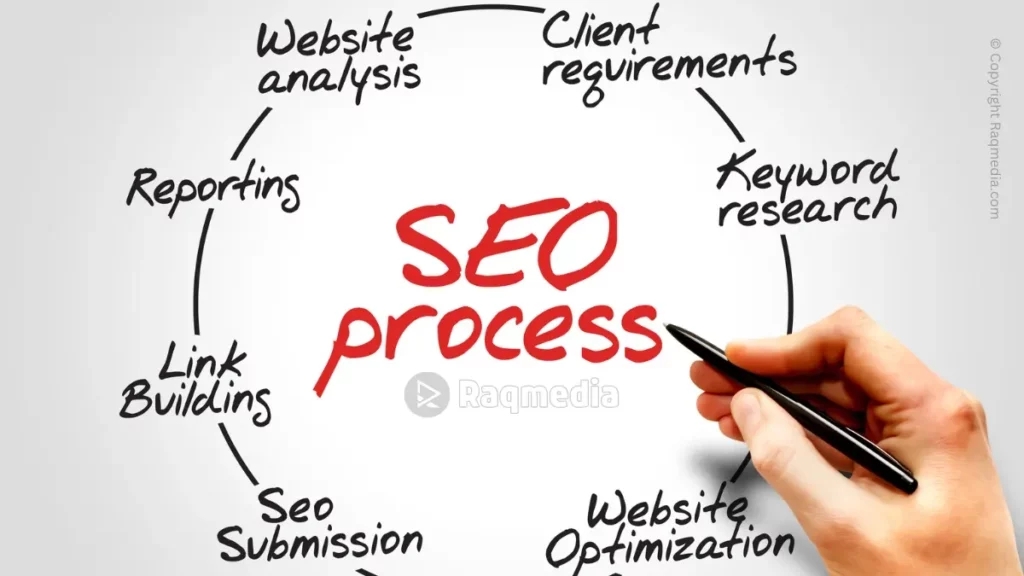
By doing this, search engines will recognize your blog as a valuable resource and rank it higher in search results. Email marketing is a great way to connect with your audience and keep them up to date with your latest blog posts. Encourage your readers to sign up for your newsletter and offer exclusive content or freebies to keep them engaged.
Remember, promoting your blog is just as important as creating great content. By using social media, SEO, and email marketing, you can build a loyal following and grow your blog into a successful business.
Building a community by engaging with readers and other bloggers
One of the most important aspects of building a successful blog is building a community. Engaging with your readers and other bloggers is a great way to do this.
Responding to comments on your blog shows your readers that you value their feedback and appreciate their time. This will also encourage them to come back and engage with your content in the future.
Another way to build a community is by joining blogging groups on social media platforms such as Facebook or Twitter. These groups are a great way to connect with other bloggers in your niche and share ideas, tips, and strategies. You can also participate in group threads or linky parties to increase exposure to your blog and engage with other bloggers.
Collaborating with other bloggers can also help you build a community. You can write guest posts for other blogs or invite other bloggers to write guest posts for your blog. This will introduce your blog to a new audience and help you build relationships with other bloggers in your niche.
Finally, hosting giveaways or contests is another way to engage with your readers and build a community. This will encourage your readers to participate and share your content with their own followers. This will help you gain more exposure and attract new readers to your blog.
Monetizing your blog: advertising, affiliate marketing, and sponsored content
Monetizing your blog is a great way to turn your passion into profit. There are several ways to monetize your blog, including advertising, affiliate marketing, and sponsored content.Advertising is the most common way to monetize a blog. You can sell ad space on your blog to companies that want to promote their products or services.
There are different types of ads, including banner ads, sponsored posts, and pay-per-click ads. The key is to make sure the ads you choose are relevant to your audience and do not detract from the user experience.
Affiliate marketing is another popular way to monetize a blog. With affiliate marketing, you promote someone else's product or service and receive a commission every time someone makes a purchase through your unique affiliate link. To be successful with affiliate marketing, you need to choose products or services that align with your blog's niche and audience.
Sponsored content is when a brand pays you to create content that promotes their product or service. This can include blog posts, social media posts, or product reviews. It's important to be transparent with your audience and disclose sponsored content.
When monetizing your blog, it's important to remember that your audience comes first. You should only promote products or services that you believe in and that align with your values. By providing value to your audience and being authentic, you can build trust and credibility, which will lead to long-term success.
Measuring success and continuously improving your blog
Measuring the success of your blog is important if you want to continue to grow and improve it. There are many metrics you can track to see how your blog is performing. Start with the basics such as how many visitors are coming to your site, how long they are staying, and what pages are they visiting.
Google Analytics is a great tool that can help you track all of these metrics and more. It's free to use, and once you've set it up, you can start analyzing your website's performance.
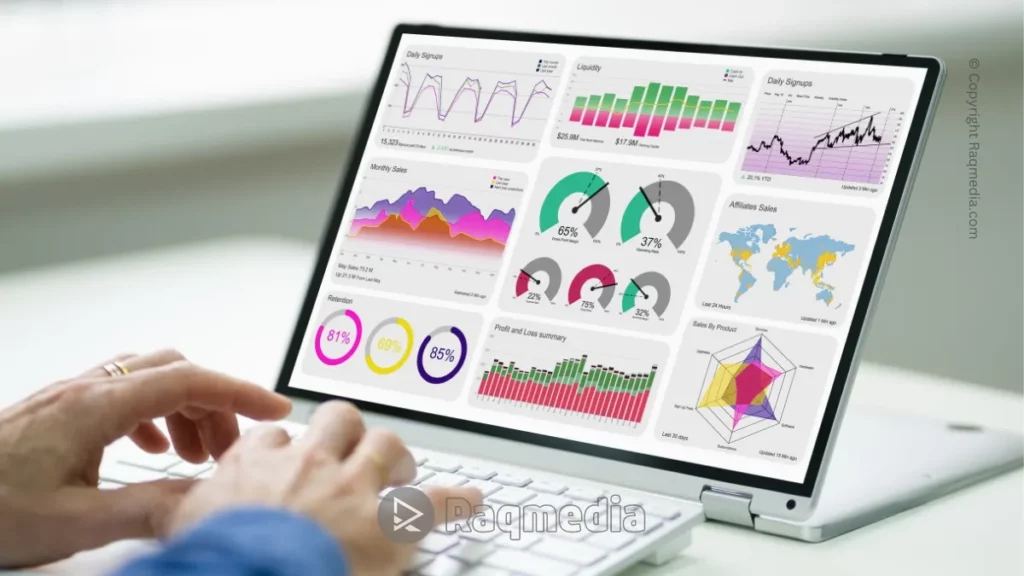
Another important metric to track is engagement. This includes metrics such as social shares, comments, and backlinks. These metrics are important because they show you how much your content is resonating with your audience. If you are seeing a lot of engagement, you know that you are creating content that your audience enjoys and finds valuable.
Finally, it's important to continuously improve your blog. Use the metrics you've tracked to identify areas of improvement. For example, if you are seeing a high bounce rate on a particular page, you may need to improve the content on that page. Or, if you are not getting a lot of social shares, you may need to create more engaging content that your audience will want to share.
By measuring your success and continuously improving your blog, you'll be able to create a successful blog that your audience loves and keeps coming back to.
Recap
We hope you found our ultimate guide to starting a successful blog from scratch both informative and inspiring. Starting a blog can be a daunting task, but with the right tools and mindset, it can be a fun and rewarding experience.
We've covered everything from choosing your niche to promoting your blog, and we hope that you're now feeling confident and ready to start your own blog. Remember, the key to success is consistency and quality content, so keep at it and don't give up! Best of luck to you on your blogging journey.


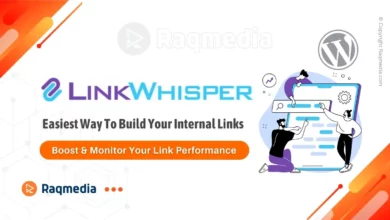
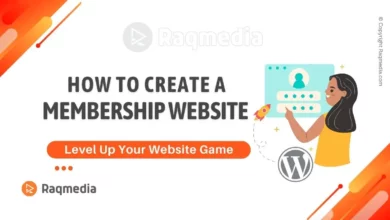
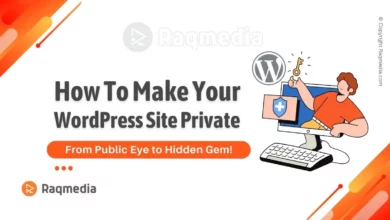
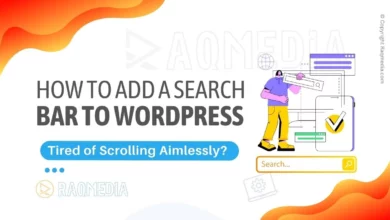
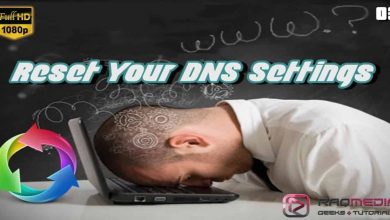
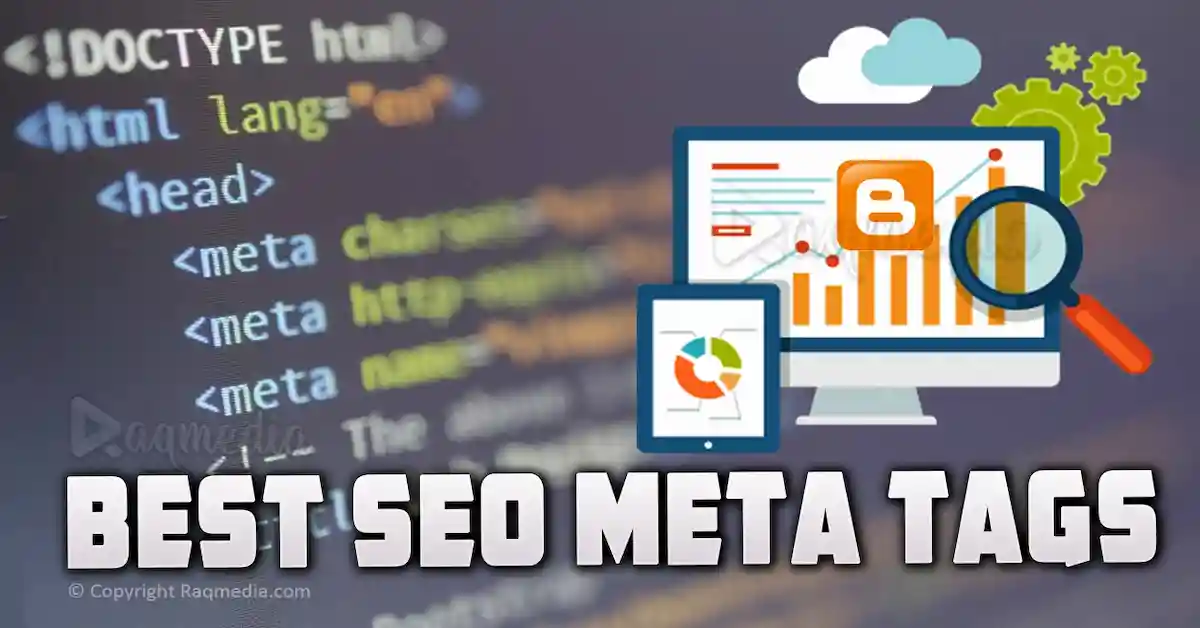
📢 Check out this 🔥 ultimate guide to starting a successful blog from scratch by #raqmedia!
🚀📝 From finding your niche to monetizing your blog, it’s got all you need!
💪😍 Unleash your blogging potential now: https://lnkd.in/dzbNK84T
🌐👍 Don’t forget to follow and like for more amazing content! 🤗
#raqmedia #bloggingtips #bloggingforbeginners #bloggerslife #blogging101 #bloggingcommunity #bloggingjourney #bloggingstrategy